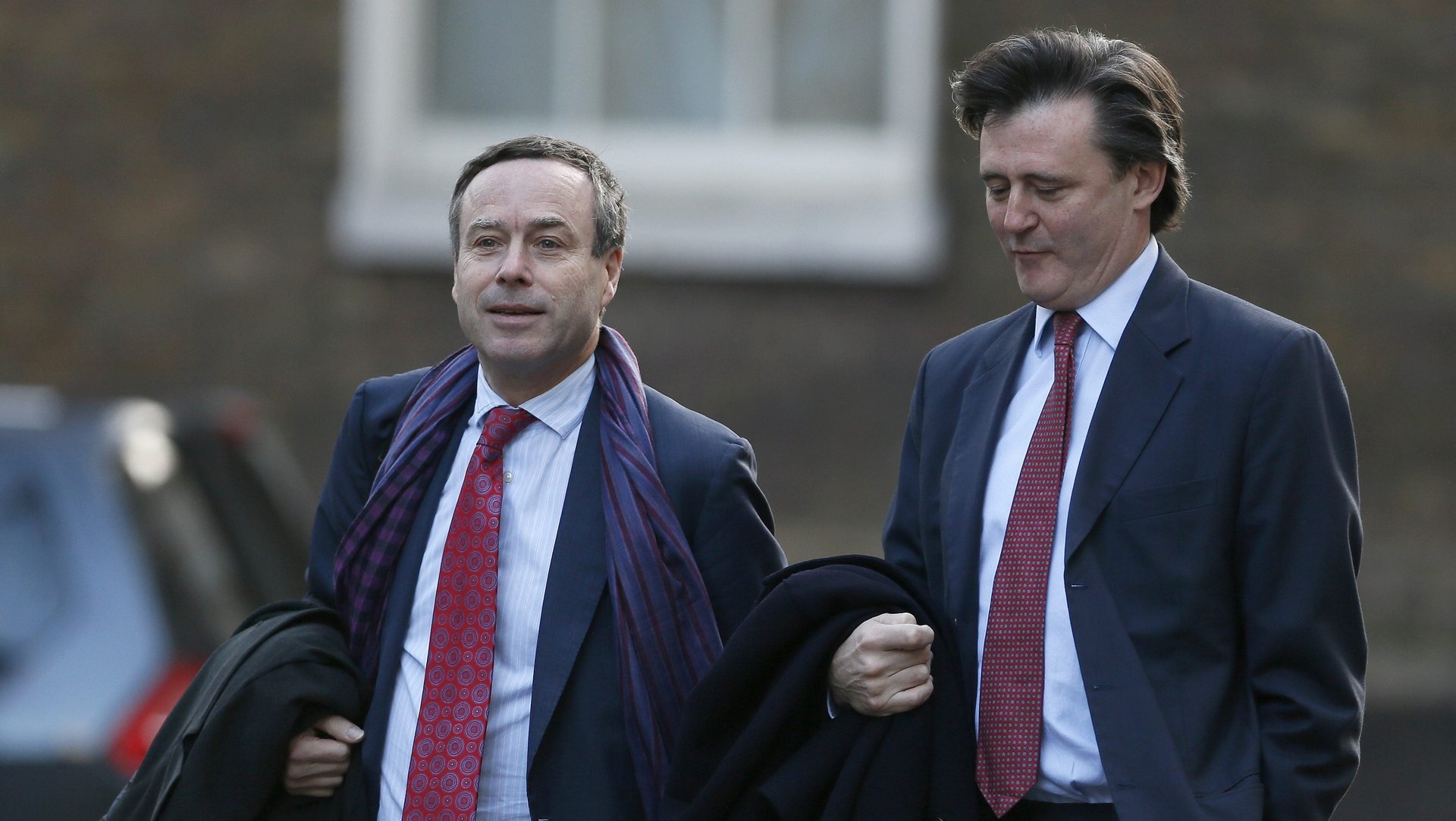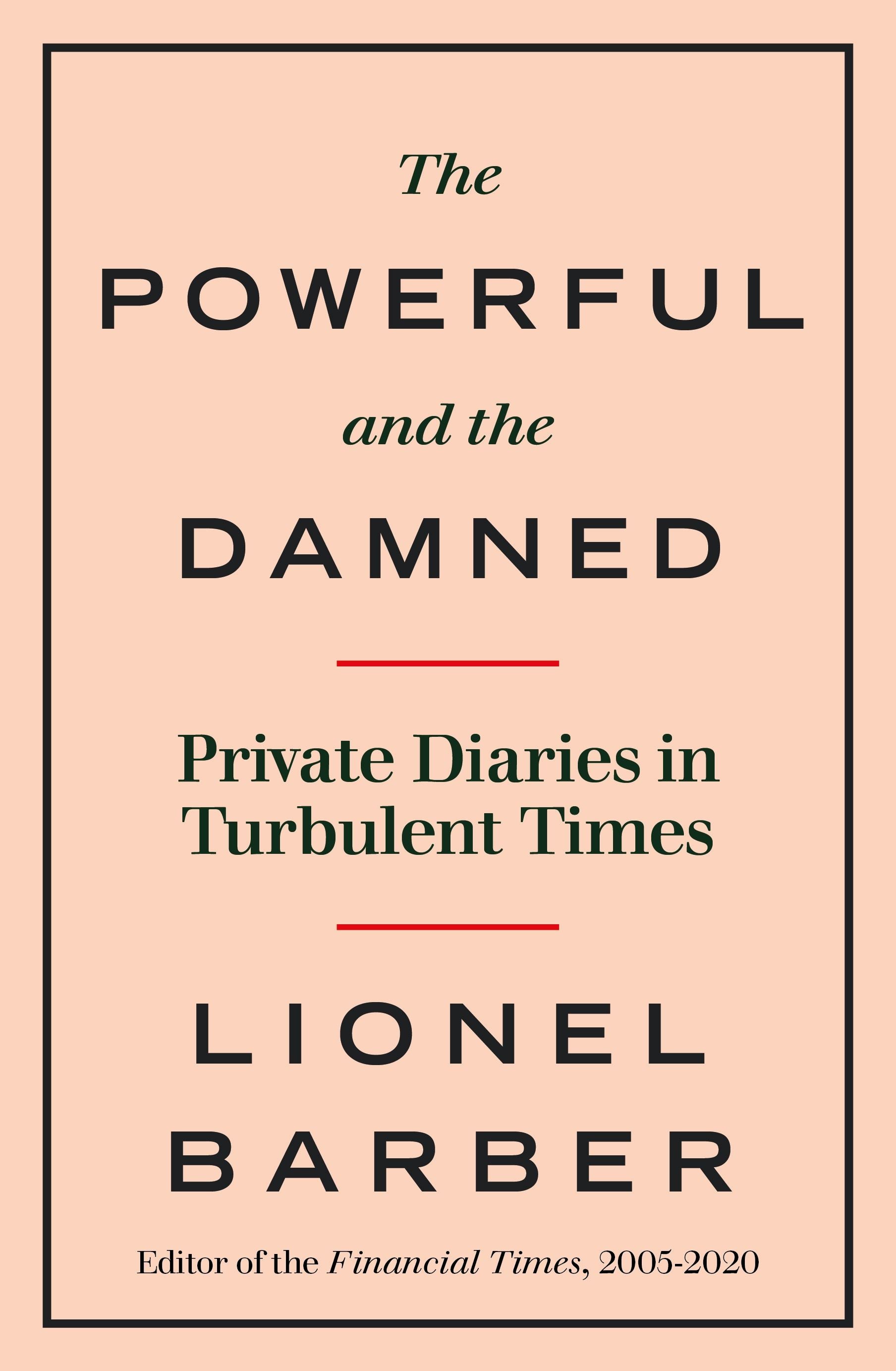Why the Financial Times was ready for the financial crisis, but not Brexit
From 2005 to 2020, Lionel Barber served as editor in chief of the Financial Times, the London-based broadsheet read by investors, executives, and policy makers around the world.


From 2005 to 2020, Lionel Barber served as editor in chief of the Financial Times, the London-based broadsheet read by investors, executives, and policy makers around the world.
Barber, 66, leveraged his position at the top of the FT to interview a dizzying range of world leaders—including US presidents Barack Obama and Donald Trump, Russia’s Vladimir Putin, Saudi Arabia’s Mohammed bin Salman, and India’s Narendra Modi—as well as CEOs at dozens of the world’s biggest companies. A dedicated note-taker, Barber drew on his recollections of these encounters for his book, The Powerful and the Damned: Private Diaries in Turbulent Times, a brisk and wryly amusing account of his years running the FT.
Along with descriptions of the many lunches, dinners, and cocktails Barber shared with the glitterati, he happily drops revealing, and occasionally embarrassing, details. After dinner at Scott’s in Mayfair with Boris Johnson—now the UK’s prime minister, Johnson was then mayor of London and the proud initiator of the city’s first bike-sharing program—Johnson hops on a bike to ride home. But as Barber and his wife leave the restaurant, “we spot the mayor folding his bike and disappearing into a gas-guzzling taxi.”
As editor of the FT, Barber also had a ringside seat for two of the biggest business stories of his lifetime: the 2008 financial crisis and its long aftermath of austerity in Europe, and the 2016 Brexit vote. The FT covered both thoroughly, although he concedes, not equally well.

It was a tumultuous period for British journalism, too. A phone-hacking scandal at Rupert Murdoch’s News of the World in 2011 led to firings, arrests, and ultimately the Leveson inquiry, a series of public hearings where Barber testified. And in 2015, the FT was sold by publishing conglomerate Pearson to Nikkei, a Japanese media company, for $1.3 billion, leading to more than a dozen trips to Japan for Barber over the next five years.
In a Zoom call with Quartz, Barber discussed his hectic travel schedule, the lessons learned from the financial crisis and Brexit, and how to rein in online conspiracy theories. This interview has been edited for length and clarity.
Quartz: One thing that struck me while reading your book is how much different it would have been during the pandemic. You were endlessly talking to people in person, sitting down for coffees and drinks and very fattening lunches. Could this book have been written if this it was all done remotely?
Lionel Barber: These were the roaring teens of friction-free travel, going around the world not worrying about disease. You cannot have the same kind of relationships virtually. This book is about looking into the whites of the eyes. It’s about smelling the horse flesh, to extend the metaphor. I reckon I’m incredibly lucky and Roula [Barber’s successor as editor of the FT, Roula Khalaf] has barely left the office. She had to interview [French president Emmanuel] Macron by screen, where I would fly to Washington on the drop of the hat for the Trump interview. I was only there for 24 hours, then on a plane to China.
I wanted to ask about your relationships with the powerful and the damned, or the great and the good, or however you want to characterize them. Your access stood the FT in very good shape in the prelude to the financial crisis. You saw the storm clouds brewing and you put the paper in a position to report on it.
The flip side of that was also true, in that your relationships with the powerful did not serve you particularly well with anticipating Brexit. When you’re meeting with CEOs and movers and shakers, you’re not meeting with the ordinary people who might’ve been the difference in the Brexit vote. Could the FT have done anything differently in anticipating Brexit?
Could you have done more, as a paper that really understood these issues, to explain the issues? Because there was so much misinformation from the leave campaign—just, I would say, blatant mistruths. Could you have made a difference?
No, I honestly, I think we did a very good job in exposing the lies. The ridiculous notion that Turkey was going to join the EU by 2020, the notion that free trade agreements will be signed overnight. The notion that the new relationship would be easily done with the EU. All that, frankly, bullshit. We exposed all that.
The flip side of that is, would it have made a difference, coming from the FT, to the audience that needed to hear it?
You know, it wouldn’t. One always has to be careful about measuring influence. But if we have influence, it’s with decision-makers: central banks, the governors, the treasuries. I think with ordinary people, less so.
Over the 15 years you were running the FT, and particularly in the last two years since, the conversation about debt and spending as a way of solving financial issues has changed really dramatically. We’re gone from pretty drastic austerity measures in Europe a decade ago to now, where the response to a financial crisis in the US is passing a $2 trillion stimulus bill. Was austerity a mistake for Europe and for the UK? Are we now living in a totally different era where debt is no longer a consideration?
The world has turned on its head. When I say the world, I mean economic orthodoxy. I think austerity was overdone. Our chief commentators, by the way, were all much more skeptical about austerity. I took the view, myself with some others, that in 2010, the [UK] deficit was up so high, we needed a path to reducing it. I think in retrospect, we could have been tougher on the government on the damage to public services. We did comment on it, but I think we could have done better reporting.
In Europe, yes, German orthodoxy went way too far. I had hours of conversations with [former European Central bank president Mario] Draghi off and on for seven or eight years, He did a brilliant job in maneuvering the Germans. There was too much, maybe, accent on the monetary policy pillar, too much weight, but in the end, that was what saved the euro.
The tremendous damage done by austerity in Europe laid the grounds for populism and deep Euro skepticism. Now has it all completely changed? I do wonder whether Biden’s reflation package is the high-water mark. I just don’t believe that inflation is banished forever. It feels terribly like debt doesn’t matter, we’ve all got the securitization under wraps, it’s all fine, property prices will keep increasing. I worry a bit. Do I think that there’ll be a sharp increase in interest rates or sharp increase in inflation? No. Do I think that a modest increase in inflation could have a serious impact on the markets and on valuations and companies that loaded up on debt? Yes. There could be a disproportionate reaction. So I think that is a story which I would be watching.
As a journalist, I thought the way you navigated the Leveson inquiry was really interesting. There’s been a lot of discussions here about what to do about Fox News and the power it has over our political discourse. As someone who’s both been in the middle of something like Leveson inquiry and someone who observes the United States from afar, what would your solution be for how to solve Fox News?
Well, that assumes that you have to solve a Fox problem. I think that there was a gap in the market, which [Rupert] Murdoch and Roger Ailes brilliantly spotted and exploited. The fairness doctrine went out the window and there are consequences. They did a brilliant job in coming up with, ‘we report, you decide.’ But frankly, some of the commentators are engaged in fake news and they should be called out.
By whom?
By other media organizations. And Fox themselves. You could see from what [former Fox executive]James Murdoch has said, not explicitly, but implicitly, that he’s clearly disaffected. But do I think that Fox News should be banned? No, I don’t. Do I think that there’s other, worse things going on in this media echo system? Yes. The bilge, the conspiracies theories.
How can a society counter the sort of toxicity that we’re seeing, and you’re right, it’s not just Fox. There’s an endless supply of conspiracy mongering online that led to the events of Jan. 6. As a sort of a wise figure in this field, do have any thoughts about how to save us?
I wrote an essay for Persuasion called In Defense of Bothsidesism. It’s a serious attempt to say, what’s the problem and how to deal with facts. Reporting both sides of the story on the left and right now is denounced as moral cowardice. It’s terrible. I do offer one or two ideas about this. Business models online now encourage, basically talking to your own audience and reinforcing that. I think we’ve only just begun to understand how social media has affected not just journalism but also civil civic discourse and our politics.
Are you going to be able to eliminate conspiracy theory? It’s always existed. The issue is the middle, the silent majority to use Nixon’s phrase, they’re the ones I worry about. They really do believe that that election was stolen. So I think you need to talk about how do we get to a better, informed citizen, and that is less to do with the media and more in the education system, frankly.